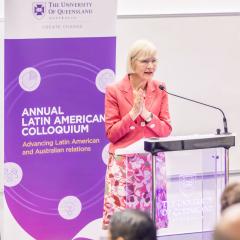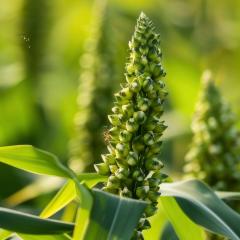When 2 Brisbane-based UQ–IITD PhD candidates attended a lunch in Sydney with Indian Minister for Education The Hon Dharmendra Pradhan, their perspectives on the research they are undertaking were sought, along with those of other Indian PhD students from other Group of Eight (Go8) universities.
The Minister was interested to meet PhD students and hear how research in Australia differs from that in India. His plans for the Indian research environment seek to deliver cutting-edge technologies and research capable of adding value to India and the country’s economy.
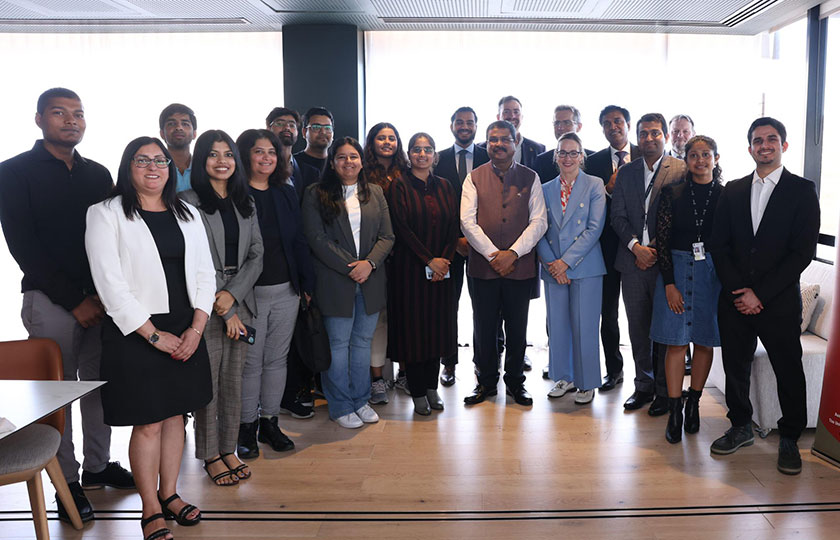
For UQ–IITD PhD candidate Satorupa Karmakar, whose project focuses on “Examining Community Resilience to Fire in Informal Settlements,” the UQ–IITD Research Academy has provided an exceptional academic journey. This unique program offers a joint PhD, allowing students to complete their degrees at both the University of Queensland (UQ) and the Indian Institute of Technology Delhi (IIT Delhi).
As an urban planner and geographer, Satorupa’s dedication to enhancing fire resilience in informal settlements stems from her passion for contributing to urban transformation and proactive disaster management.
“The Academy encourages an environment of academic excellence while providing robust support for research aspirations."
"What stands out is encouragement to push boundaries and take on new challenges, whether in academic pursuits or intellectual endeavours."
"The interdisciplinarity of the program provides a concoction of research and technical aptitude and the skills provided are broadening my knowledge base,” Satorupa said.
“Being exposed to both Indian and Australian research environments has been particularly enlightening. While the academic approaches differ somewhat between the 2 countries, this diversity has strengthened my development as a researcher,” said Satorupa.
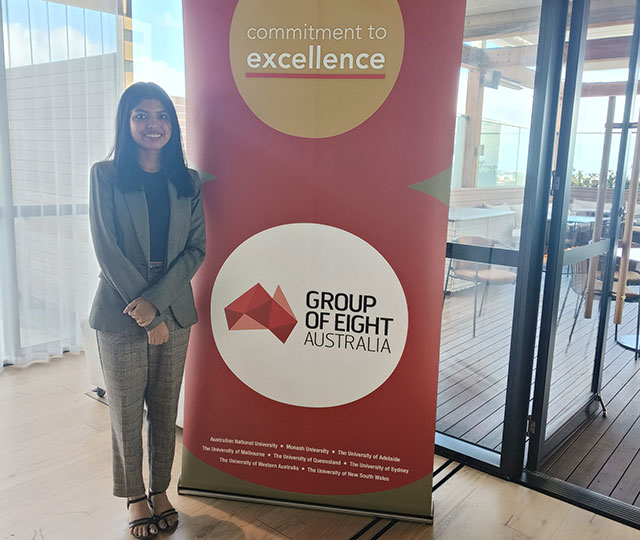
Harshal Verma is close to the end of his joint UQ–IITD PhD. A mining engineer, his project concerns the ‘Utilization of Mining Wastes as Backfill Material for Mechanically Stabilized Earth (MSE) Walls’. The benefits of the dual degree are powerful given the emphasis he observes on practical, impactful outcomes.
“Australia’s mining sector is at the forefront of adopting automation and innovation. Exposure to the Australian mining industry can benefit me as a mining engineer by providing hands-on experience with cutting-edge technology, and insight into sustainable mining practices that reduce environmental impact,” Harshal said.
“The experience of studying across 2 cultures has enriched my perspective, allowing me to adapt to varied working environments and collaborate effectively with international teams. This dual experience has not only broadened my technical knowledge but has strengthened my adaptability and global outlook.”
For both Satorupa and Harshal, meeting the Indian Minister for Education in Sydney in October, and participating in the dialogue with other delegates, was an exceptional opportunity.
“The Minister's interest in my research reinforced the importance of cross-cultural collaboration in addressing urban challenges. The networking opportunities and discussion about novel research prospects have helped me envision clearer pathways for contributing to future urban resilience initiatives across both nations,” Satopura said.
Harshal said that engaging directly with leaders from other universities and addressing the Indian Minister provided a unique situation to discuss the role of research in driving innovation and strengthening India-Australia collaborations.
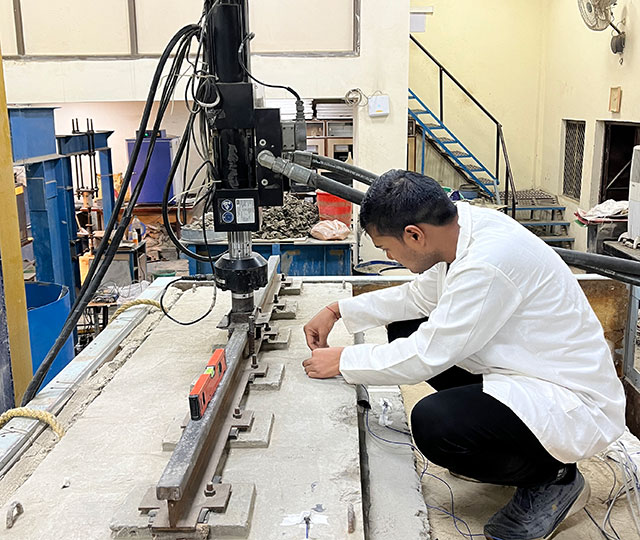
“Sharing my research insights and hearing from fellow candidates about their work allowed us to showcase the impacts of our joint research efforts. Discussing my research in such a distinguished setting also honed my communication skills, especially in presenting complex topics to diverse audiences, essential as I progress in my career,” Harshal said.
Satorupa Karmaker is supervised by Associate Professor David Lange, School of Civil Engineering (UQ) and Upasna Sharma, School of Public Policy (IITD Supervisor).
Harshal Verma is supervised by Professor David Williams and Dr Partha Narayan Mishra (UQ) and Professor Bappaditya Manna (IITD).

